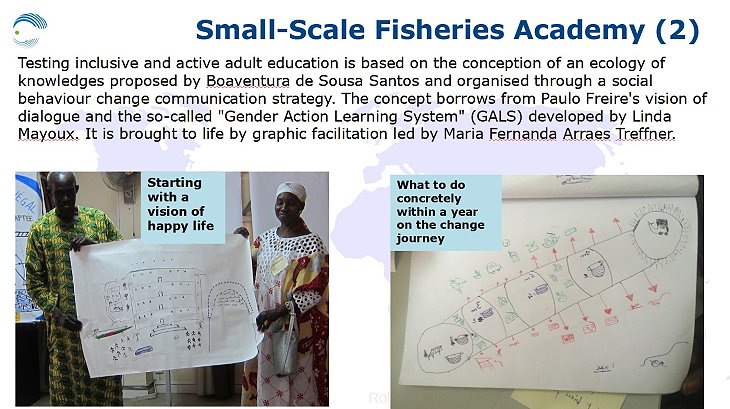 The World Fisheries Congress this year in Adelaide, Australia, was convened in hybrid format - a mammoth task to make sure the three parallel streams of on-site lectures and 4 parallel on-demand sessions could all take place and be catered for. Thumbs up for the local scientific and organising teams for an interesting mix and smooth operation. But because there was so much going on, it was difficult to follow even the streams of sessions most relevant to our work.
The World Fisheries Congress this year in Adelaide, Australia, was convened in hybrid format - a mammoth task to make sure the three parallel streams of on-site lectures and 4 parallel on-demand sessions could all take place and be catered for. Thumbs up for the local scientific and organising teams for an interesting mix and smooth operation. But because there was so much going on, it was difficult to follow even the streams of sessions most relevant to our work.
Our submission was made part of a stream titled "People - women in fisheries, workforce, investment, safety and building capacity" which had four consecutive sessions. Our contribution focused on the early experiences of the small-scale fisheries academy in Senegal and narrated how it celebrates local culture and supports men and women in their aspirations for better lives in the face of multiple challenges.
These challenges are at individual and collective levels, arising for example from overexploitation of resources, weak public services, difficult access to credit and markets, among others. By offering a safe space for respectful multi-stakeholder dialogue academy learners develop operational change journey maps to address these challenges through individual and collective action.

The early results show that improvements are possible as people experience in practice that it is possible to implement orientations contained in the Voluntary Guidelines for Securing Sustainable Small-Scale Fisheries (SSF Guidelines). Click here to see the registration on our YouTube channel.
In the same session, Nicole Franz of FAO presented efforts to develop national implementation plans for the SSF Guidelines and help translate the principles into practice. The Academy in Senegal is a step on this road.








